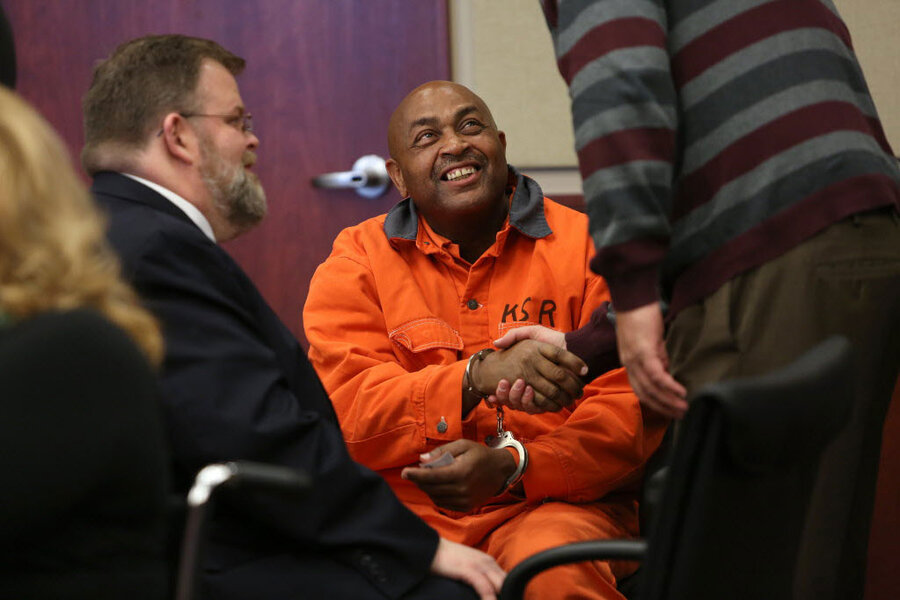US breaks exoneration record for third year in a row: What's driving the trend?
Loading...
Texas has a reputation for being tough on crime, but the state’s performance in 2015 shows its courts are trying to be tough on justice, too.
US courts cleared a record 149 wrongful convictions in 2015, with 54 of them in Texas, according to a report released on Wednesday by the National Registry of Exonerations at the University of Michigan Law School.
The United States has seen record numbers of exonerations for three years in a row now, driven, in part, by a renewed willingness among prosecutors to revisit old cases. And Texas has been leading that charge, as The Christian Science Monitor reported in 2014.
Although forensics played a role, the record number of exonerations had little to do with sudden discoveries of hard evidence or DNA searches; rather, courts in Dallas, Houston, and Brooklyn, N.Y., instigated case reviews by establishing conviction integrity units.
“For the integrity of the system, it is the right thing to do," Inger Chandler, head of the Harris County District Attorney's Conviction Review Section, which saw 42 exonerations last year, told Reuters.
Texas led the pack for exonerating wrongful convictions, but New York had 17 exonerations, and Illinois had 13.
“There is a coming to terms that this is a regular problem, not just something that happens once in a while and unpredictably," Samuel Gross, the registry’s editor and a law professor at the University of Michigan told Reuters. "But progress so far is a drop in the bucket."
Official misconduct was a partial driver of the record number of cases in 2015. Three-quarters of the 58 homicide cases were exonerated because of such court missteps.
Exonerated drug convictions, however, had a different driver. In many convictions for drug possession, the investigative units used lab evidence and found that some people confessed to avoid a trial with the possibility of longer sentences.
“We have turned the corner in dealing with wrongful convictions,” the report said. “There's a lot more to do, but it's just a matter of time.”
The shift toward restorative justice began several years ago. A then-record 87 cases were exonerated in 2013, as prosecutors began to make innocence investigations more of a priority, the Monitor reported.
Texas, New York, and Illinois led the way for exonerations then as well. Only 18 were prompted by DNA evidence, a sign that courts were starting investigations proactively rather than waiting for new evidence to appear.
“Police and prosecutors appear to be taking increasingly active roles in reinvestigating possible false convictions, and to be more responsive to claims of innocence from convicted defendants,” according to a report at the time.
Courts exonerated 139 cases in 2014, driven increased willingness to revisit cases using the investigative units and cooperation, or even initiation, by law enforcement.
This report contains material from Reuters.








